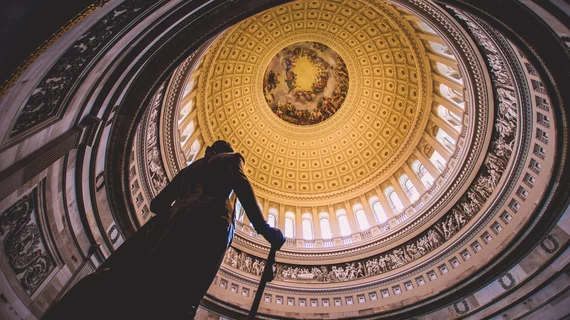ACR ‘pleased’ with $2T coronavirus relief act, awaits further guidance for beleaguered radiology practices
The American College of Radiology said Friday that it’s “pleased” with the recent passage of the CARES Act, which would pump $2 trillion into the economy to help struggling businesses and consumers.
Following passage in the Senate Thursday, U.S. Congress also gave its approval Friday, shipping the bill off to President Donald Trump, who promptly signed it. The legislation includes some $100 billion to help providers hampered by the economic fallout from COVID-19.
In a statement sent to Radiology Business, the ACR said it looks forward to “swift regulatory action” that will spell out how imaging physicians and hospitals can apply for relief.
“We want to make sure our radiology practices whose volume of patients have been severely impacted due to the ban on elective procedures will have access to the funds,” said Cynthia Moran, ACR’s executive VP of government relations and health policy. “We also intend to encourage the Congress to revisit any shortfalls that may exist in the current legislation, as we expect another COVID economic stimulus bill to be developed in the coming weeks.”
In its own statement, the Medical Group Management Association—which represents 55,000 U.S. practice leaders across the U.S., including radiology—similarly praised the bill. The group called funds from the legislation “critical in helping medical practices keep their doors open during this national emergency.”
"Now that Congress has acted, the administration needs to move quickly and use all authority necessary to distribute direct payments to medical groups,” added Anders Gilberg, MGMA’s senior VP of government affairs. “Our nation’s physicians simply cannot afford another bureaucratic exercise to access these funds. This is not business as usual, and medical practices need immediate financial support."
Both the ACR and the Association for Medical Imaging Management offered detailed breakdowns of the Coronavirus Aid, Relief, and Economic Security Act on Friday.
Radiology practices have been hit hard by the economic effects of the pandemic, forced to reschedule nonurgent imaging to help flatten the curve. Physician firm Mednax revealed earlier this week that it’s seen a significant decline in imaging volume, compelling leaders to revise revenue forecasts.

